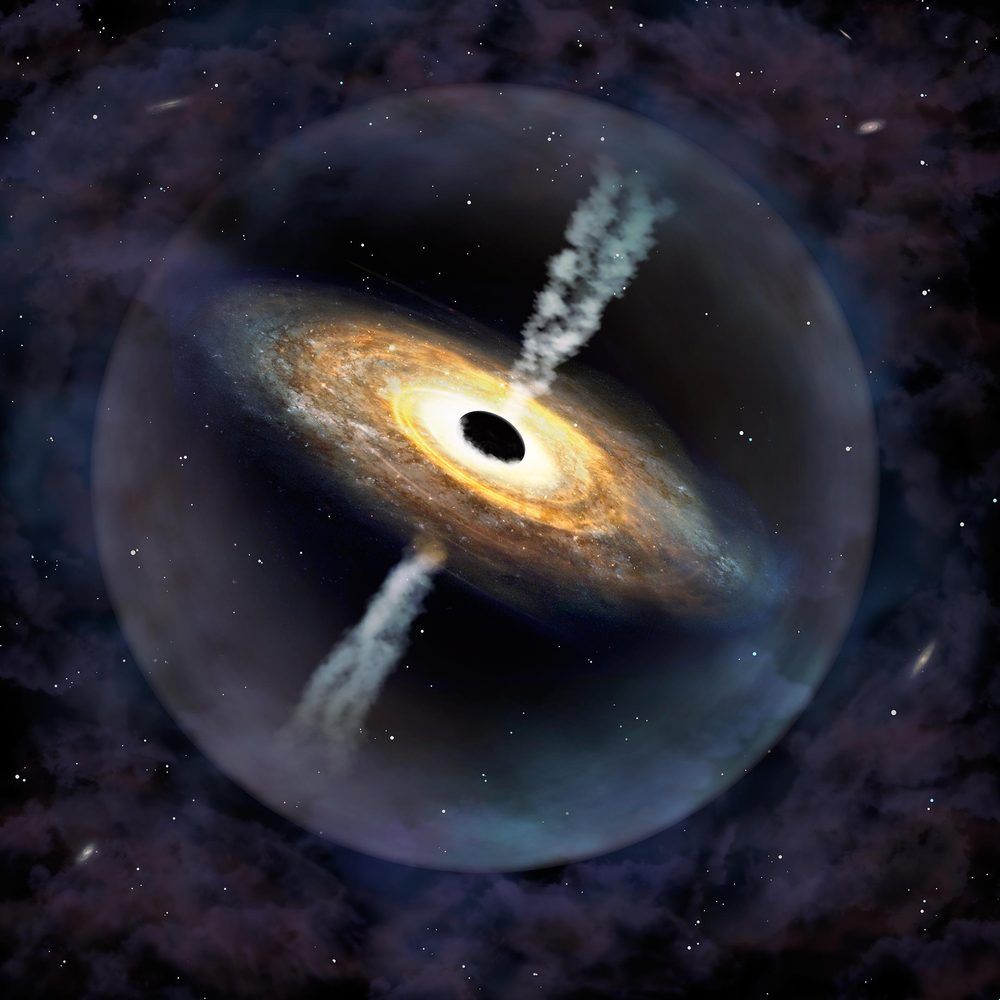The second most distant quasar ever discovered now has a Hawaiian name.
Astronomers have discovered the second most distant quasar ever found, using the international Gemini Observatory and Cerro Tololo Inter-American Observatory (CTIO), Programs of NSF’s NOIRLab. It is also the first quasar to receive an indigenous Hawaiian name, Pōniuāʻena. The quasar contains a monster black hole, twice the mass of the black hole in the only other quasar found at the same epoch, challenging the current theories of supermassive black hole formation and growth in the early Universe.
After more than a decade of searching for the first quasars, a team of astronomers used the NOIRLab’s Gemini Observatory and CTIO to discover the most massive quasar known in the early Universe — detected from a time only 700 million years after the Big Bang [1]. Quasars are the most energetic objects in the Universe, powered by their supermassive black holes, and since their discovery astronomers have been keen to determine when they first appeared in our cosmic history.










Comments are closed.